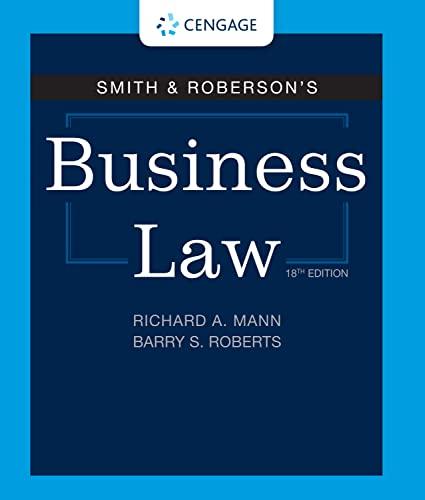Answered step by step
Verified Expert Solution
Question
1 Approved Answer
If an employee indicates that they are tendering their resignation, why is it unwise to refuse the resignation and proceed with a termination? What should
- If an employee indicates that they are tendering their resignation, why is it unwise to refuse the resignation and proceed with a termination? What should an employer do if they wish to end employment more quickly?
- Explain the common law obligations every employee must adhere too after they have left their employment? These obligations do not need to be written into the employment contract. What about employees who are in a position of trust (fiduciaries)?
- Discuss the termination of employees without just cause and the notice to which they are entitled. Explain:
- According to employment law principles, why is an employee is entitled to reasonable notice if terminated without cause (2 Marks)
- How to determine reasonable notice (including the basic factors to be considered). Be sure to explain in enough detail to offer some principles to help establish appropriate reasonable notice (5 Marks);
- Two potential circumstances that might increase the amount/length of an employee's notice period beyond what would otherwise be provided (2 Marks); and,
- What is the difference between employment standards severance obligations and the common law? What role does the Employment Standards Act pay in influencing reasonable notice? (1 Mark)
4. In relation to the case of Obeng v. Safeway:
(a) Briefly outline the facts of this case;
(b) Summarize the Court's decision;
(c) Why is this case important to employment law (what does this case help us understand); and,
(d) Briefly explain why is meant by proportionality and the contextual approach in relation to just cause dismissals.
5. Briefly explain:
- the Facts of McKinley v. BCTEL
- the key employment law issue(s) considered by the Court;
- Supreme Court's final decision; and,
- Why this case is so important to employment law in Canada and what does this case help us understand?
6. In Battle Mountain v. United Steelworkers, an employee exercised his right to refuse to work under workers compensation legislation. Answer the following:
- Briefly outline the facts in this case
- How is the right to refuse to work defined in this case? When can an employee refuse to work for safety reasons?
- What was the outcome in this case and the reasoning used by the adjudicator?
Step by Step Solution
There are 3 Steps involved in it
Step: 1

Get Instant Access to Expert-Tailored Solutions
See step-by-step solutions with expert insights and AI powered tools for academic success
Step: 2

Step: 3

Ace Your Homework with AI
Get the answers you need in no time with our AI-driven, step-by-step assistance
Get Started


